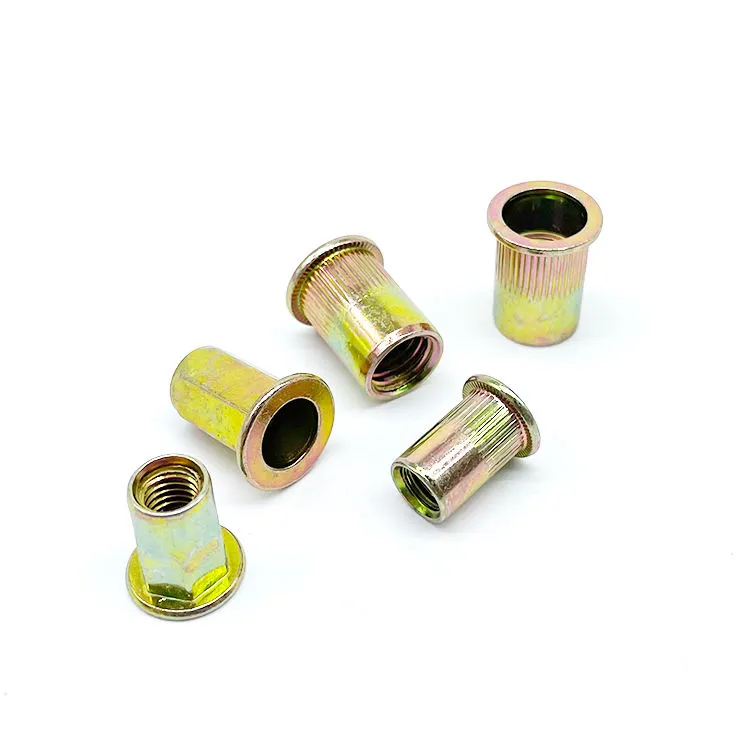

Self-Drilling Screws for Enhanced Fastening Performance and Versatile Applications
Nov . 26, 2024 05:34 Back to list
Self-Drilling Screws for Enhanced Fastening Performance and Versatile Applications
The Versatility of Self-Tapping Screws A Comprehensive Overview
In the realm of construction and manufacturing, fasteners play a critical role in ensuring the integrity and longevity of assembled products. Among the multitude of fastening options available, self-tapping screws stand out for their unique design and functionality. This article delves into the various features, applications, and benefits of self-tapping screws, illustrating why they are an essential component in numerous industries.
Understanding Self-Tapping Screws
Self-tapping screws are designed to create their own hole as they are driven into materials. This characteristic eliminates the need for pre-drilling, making them a popular choice for both professionals and DIY enthusiasts. The screw's tip features a sharp point and thread design that enables it to cut through material, effectively creating a thread as it advances. This innovation significantly reduces construction time and labor costs, making self-tapping screws a highly efficient fastening solution.
Types of Self-Tapping Screws
Self-tapping screws can be classified into several categories based on their design and intended application. The most common types include
1. Thread Cutting Screws These screws have cutting edges that allow them to produce threads in softer materials such as plastic and thin metals. They are ideal for applications requiring a strong hold without the risk of stripping.
2. Thread Forming Screws Unlike thread cutting screws, thread forming screws create threads in the material without removing any material. They are commonly used in applications involving harder materials, such as metals and composites, ensuring a secure fit without causing any deformation.
3. Self-Drilling Screws Often referred to as Tek screws, these have a drill bit-like tip that allows them to penetrate thick materials, such as steel and metal siding, without pre-drilling. This feature makes them invaluable in construction projects where speed and strength are paramount.
Applications of Self-Tapping Screws
The versatility of self-tapping screws makes them suitable for a wide range of applications across various industries
. Some notable use cases include- Construction and Framing In residential and commercial construction, self-tapping screws are extensively used to secure drywall, metal studs, framing, and other structural elements. Their resilience and ease of use make them a preferred choice for builders.
self tapping screw 1

- Automotive Industry Self-tapping screws are widely employed in automotive manufacturing for securing components such as body panels, interiors, and mechanical parts. Their strength ensures that parts remain securely fastened, even in the face of vibrations and mechanical stress.
- Electronics In the realm of electronics, self-tapping screws are used for assembling casings, securing components, and ensuring that devices remain intact during operation. Their ability to create tight fits without the added complexity of pre-drilling is particularly advantageous in this sector.
- Home Improvement Projects DIY enthusiasts appreciate self-tapping screws for their convenience and reliability. Whether assembling furniture, hanging fixtures, or mounting shelves, these screws simplify the process and enhance durability.
Advantages of Using Self-Tapping Screws
The benefits of self-tapping screws extend beyond their ease of use. Here are some key advantages
1. Time-Saving By eliminating the need for pre-drilling, self-tapping screws significantly reduce installation time, allowing for faster project completion.
2. Cost-Effectiveness The reduced labor time and fewer materials required (such as drill bits) lead to lower overall costs, making self-tapping screws an economical option for various projects.
3. Strong Joints Self-tapping screws provide excellent holding power, ensuring that the assembled parts remain securely fastened over time.
4. Versatility With a wide range of types and sizes available, self-tapping screws can be used in diverse materials and applications, making them a go-to solution for many industries.
Conclusion
In summary, self-tapping screws represent a significant innovation in fastening technology, combining efficiency, versatility, and durability. Their ability to create threads and secure materials without the need for pre-drilling has made them indispensable in various sectors, from construction to electronics. As industries continue to evolve and seek faster, more efficient solutions, self-tapping screws will undoubtedly remain at the forefront of fastening options, facilitating progress and innovation in countless applications. Whether you are a professional contractor or a DIY enthusiast, understanding and utilizing self-tapping screws can enhance the quality and efficiency of your projects.
Latest news
-
High-Strength Hot Dip Galvanized Bolts - Hebei Longze | Corrosion Resistance, Customization
NewsJul.30,2025
-
Hot Dip Galvanized Bolts-Hebei Longze|Corrosion Resistance&High Strength
NewsJul.30,2025
-
High-Strength Hot-Dip Galvanized Bolts-Hebei Longze|Corrosion Resistance&High Strength
NewsJul.30,2025
-
Hot Dip Galvanized Bolts-Hebei Longze|Corrosion Resistance&High Strength
NewsJul.30,2025
-
Hot Dip Galvanized Bolts - Hebei Longze | Corrosion Resistance, High Strength
NewsJul.30,2025
-
High-Strength Hot Dip Galvanized Bolts-Hebei Longze|Corrosion Resistance, Grade 8.8
NewsJul.30,2025

